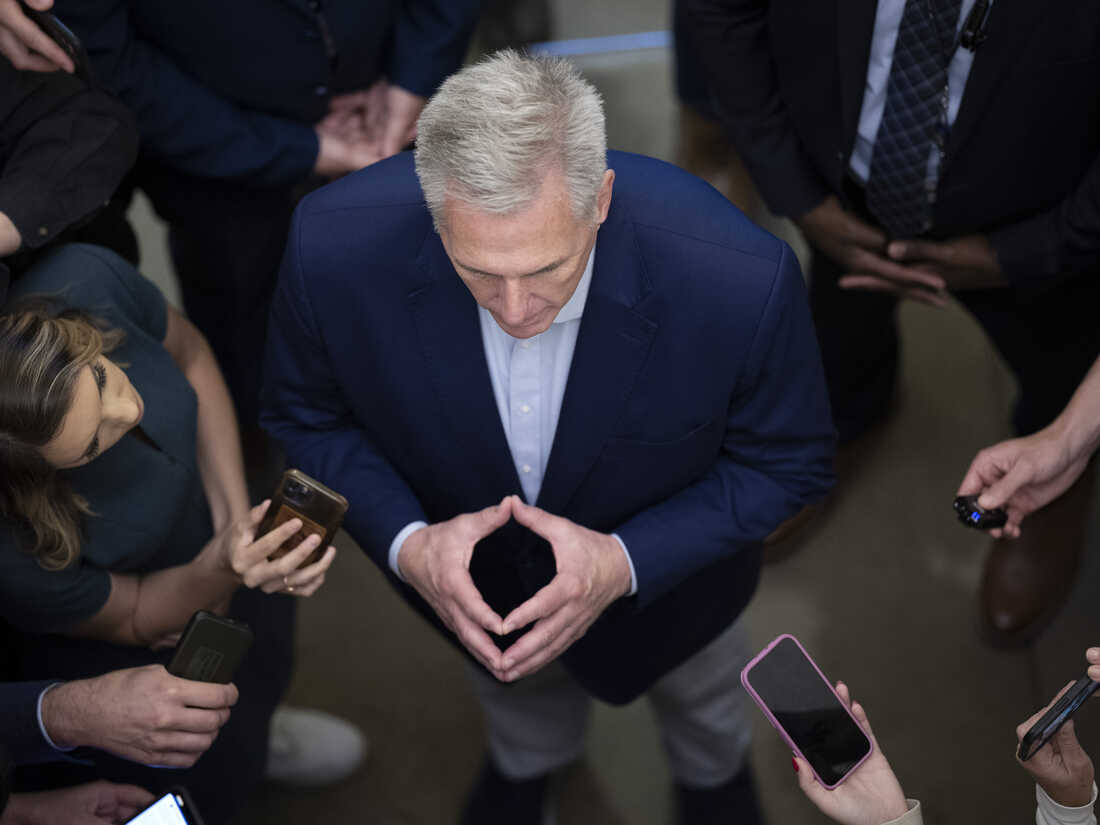White House and Capitol Hill negotiators reach some agreements to avoid default
Politics
White House and Capitol Hill negotiators reach some agreements to avoid default

House Speaker Rep. Kevin McCarthy, R-Calif., speaks to members of the media after arriving at the U.S. Capitol on Friday.
Win McNamee/Getty Images
hide caption
toggle caption
Win McNamee/Getty Images
House Speaker Rep. Kevin McCarthy, R-Calif., speaks to members of the media after arriving at the U.S. Capitol on Friday.
Win McNamee/Getty Images
Negotiators have hashed out some details of a deal to prevent the country from defaulting on its debt as soon as next, according to a source familiar with the talks.
The contours of a debt ceiling deal are largely worked out – including on discretionary spending and defense spending — but sticking points include work requirements and permitting, the source told NPR.
House Speaker Kevin McCarthy told reporters Friday morning that it’s “crunch time.”
“We know it’s not easy, but we’re going to make sure we’re not just trying to get an agreement,” he said. “We’re trying to get something that’s worthy of the American people that changes the trajectory.”
The deal being worked out by negotiators would raise the government’s borrowing limit for two years, while putting two-year caps on federal spending, said the source, who was not authorized to speak about the ongoing negotiations. Preliminary details were first reported by the New York Times.
The two sides are also close to an agreement on IRS funding, which Republicans are hoping to cut. But both sides are dug in on work requirements for social benefits programs.
On Monday, Treasury Secretary Janet Yellen reiterated the warning that Congress has until about June 1 to raise or suspend the debt limit. McCarthy has vowed to give members 72 hours to review text before putting it to a floor vote. The Senate will then have to vote on the measure if passed by the House.
Most economists agree an actual default could result in a recession. A default would severely affect financial markets, increase mortgage rates and interest rates on credit cards, could cause government workers and Social Security recipients to go unpaid, and could make it difficult for businesses and citizens to borrow money.
McCarthy told reporters Friday that negotiators worked through the night on Thursday, and he believes they made progress.
“There is forward progress but each time there’s forward progress the issues that remain become more difficult and more challenging,” Rep. Patrick McHenry, one of McCarthy’s negotiators, told reporters Friday afternoon.
Negotiators for the administration are currently not scheduled to meet with McCarthy in person on Friday, McHenry said, but the two groups continue to talk virtually.


